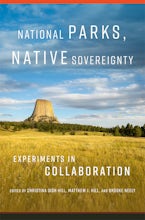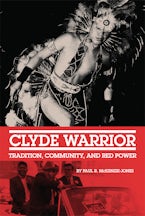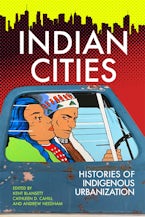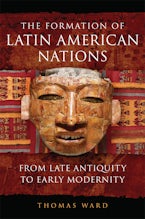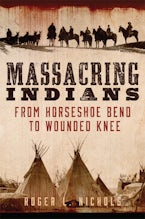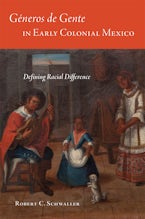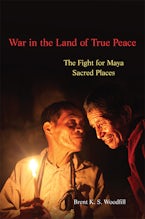SOCIAL SCIENCE / Indigenous Studies
Showing results 1-10 of 17
Filter Results OPEN +

Reservation Politics
Historical Trauma, Economic Development, and Intratribal Conflict
By engaging a topic often avoided in political science and American Indian studies, Reservation Politics allows us to see complex historical processes at work in contemporary American Indian life. Orr’s findings are essential to understanding why tribal governments make the choices they do.
National Parks, Native Sovereignty
Experiments in Collaboration
National Parks, Native Sovereignty emphasizes emotional commitment, mutual respect, and patience, rather than focusing on “land-back” solutions, in the co-creation of a socially sensible public lands policy.
Clyde Warrior
Tradition, Community, and Red Power
The phrase Red Power, coined by Clyde Warrior (1939–1968) in the 1960s, introduced militant rhetoric into American Indian activism. In this first-ever biography of Warrior, historian Paul R. McKenzie-Jones presents the Ponca leader as the architect of the Red Power movement, spotlighting him as one of the most significant and influential figures in the fight for Indian rights.
Indian Cities
Histories of Indigenous Urbanization
All the contributions to this volume show how, from colonial times to the present day, Indigenous people have shaped and been shaped by urban spaces. Collectively they demonstrate that urban history and Indigenous history are incomplete without each other.
The Formation of Latin American Nations
From Late Antiquity to Early Modernity
This pioneering work brings the pre-Columbian and colonial history of Latin America home: rather than starting out in Spain and following Columbus and the conquistadores as they “discover” New World peoples, The Formation of Latin American Nations begins with the Mesoamerican and South American nations as they were before the advent of European colonialism—and only then moves on to the sixteenth-century Spanish arrival and its impact.
Watermelon Nights
First published in 1998, Watermelon Nights remains one of the few works of fiction to illuminate the experiences of urban Native Americans and is the only one to depict the historical conditions that shape a tribe’s rural-to-urban migration.
Massacring Indians
From Horseshoe Bend to Wounded Knee
By offering a broader synthesis of the attacks, Massacring Indians uncovers a more disturbing truth: that slaughtering innocent people was routine practice for U.S. troops and their leaders.
Géneros de Gente in Early Colonial Mexico
Defining Racial Difference
Presenting a more complex picture of the ways difference came to be defined in colonial Mexico, this book exposes important tensions within Spanish colonialism and the developing social order. It affords a significant new view of the development and social experience of race—in early colonial Mexico and afterward.
Charity for and by the Poor
Franciscan and Indigenous Confraternities in Mexico, 1527–1700
In Charity for and by the Poor, Laura Dierksmeier investigates how the reformed Franciscans’ commitment to evangelizing Mexico gave rise to an extensive network of local confraternities and their respective care institutions.
War in the Land of True Peace
The Fight for Maya Sacred Places
From early struggles to remove foreign influence to present-day battles over land tenure and indigenous-run ecotourism parks, this book documents a continuity in Maya culture over several thousand years—and illuminates the world view, with its sense of personhood and religion so different from the West’s, that informs this enduring culture.

Reservation Politics
Historical Trauma, Economic Development, and Intratribal Conflict
By engaging a topic often avoided in political science and American Indian studies, Reservation Politics allows us to see complex historical processes at work in contemporary American Indian life. Orr’s findings are essential to understanding why tribal governments make the choices they do.
National Parks, Native Sovereignty
Experiments in Collaboration
National Parks, Native Sovereignty emphasizes emotional commitment, mutual respect, and patience, rather than focusing on “land-back” solutions, in the co-creation of a socially sensible public lands policy.
Clyde Warrior
Tradition, Community, and Red Power
The phrase Red Power, coined by Clyde Warrior (1939–1968) in the 1960s, introduced militant rhetoric into American Indian activism. In this first-ever biography of Warrior, historian Paul R. McKenzie-Jones presents the Ponca leader as the architect of the Red Power movement, spotlighting him as one of the most significant and influential figures in the fight for Indian rights.
Indian Cities
Histories of Indigenous Urbanization
All the contributions to this volume show how, from colonial times to the present day, Indigenous people have shaped and been shaped by urban spaces. Collectively they demonstrate that urban history and Indigenous history are incomplete without each other.
The Formation of Latin American Nations
From Late Antiquity to Early Modernity
This pioneering work brings the pre-Columbian and colonial history of Latin America home: rather than starting out in Spain and following Columbus and the conquistadores as they “discover” New World peoples, The Formation of Latin American Nations begins with the Mesoamerican and South American nations as they were before the advent of European colonialism—and only then moves on to the sixteenth-century Spanish arrival and its impact.
Watermelon Nights
First published in 1998, Watermelon Nights remains one of the few works of fiction to illuminate the experiences of urban Native Americans and is the only one to depict the historical conditions that shape a tribe’s rural-to-urban migration.
Massacring Indians
From Horseshoe Bend to Wounded Knee
By offering a broader synthesis of the attacks, Massacring Indians uncovers a more disturbing truth: that slaughtering innocent people was routine practice for U.S. troops and their leaders.
Géneros de Gente in Early Colonial Mexico
Defining Racial Difference
Presenting a more complex picture of the ways difference came to be defined in colonial Mexico, this book exposes important tensions within Spanish colonialism and the developing social order. It affords a significant new view of the development and social experience of race—in early colonial Mexico and afterward.
Charity for and by the Poor
Franciscan and Indigenous Confraternities in Mexico, 1527–1700
In Charity for and by the Poor, Laura Dierksmeier investigates how the reformed Franciscans’ commitment to evangelizing Mexico gave rise to an extensive network of local confraternities and their respective care institutions.
War in the Land of True Peace
The Fight for Maya Sacred Places
From early struggles to remove foreign influence to present-day battles over land tenure and indigenous-run ecotourism parks, this book documents a continuity in Maya culture over several thousand years—and illuminates the world view, with its sense of personhood and religion so different from the West’s, that informs this enduring culture.


